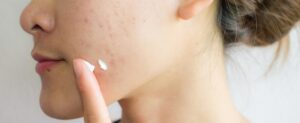Acne is a common skin condition affecting people of all ages, causing physical discomfort and impacting self-esteem. Whether you’re a teenager experiencing the first signs of puberty or an adult dealing with persistent breakouts, understanding how to manage and treat is essential. This article will explore tips, tricks, and treatment options to help you deal with acne and achieve clearer, healthier skin.
Understanding Acne:
Acne develops when hair follicles become clogged with oil and dead skin cells, forming pimples, blackheads, and whiteheads. Factors such as genetics, hormonal changes, and lifestyle choices can contribute to the development and exacerbation. While it’s challenging to completely prevent acne, adopting a comprehensive approach to skincare can significantly reduce its impact.
Tips for Managing Acne:
Establish a Consistent Skincare Routine:
Developing a regular skincare routine is crucial for managing acne. Cleanse your face twice daily using a mild, non-comedogenic cleanser to remove excess oil and impurities. Avoid harsh scrubs.
Moisturize:
Despite what many people think, moisturizing is crucial for skin prone to acne. If you want to keep your skin nourished without blocking pores, use a mild, oil-free moisturizer.
Hands Off:
Resist the urge to pick, squeeze, or pop pimples, which can lead to scarring and spreading bacteria. Touching your face with dirty hands can also exacerbate acne.
Healthy Diet:
Keep your diet well-balanced and full of nutritious grains, fruits, and veggies. Limit your sugary, processed foods and dairy intake, as some studies suggest a link between these foods .
Stay Hydrated:
Adequate hydration is vital for overall skin health. To help keep your skin moisturized and to help flush out pollutants, drink lots of water.

Tricks for Quick Relief:
Spot Treatments:
Over-the-counter spot treatments containing ingredients like benzoyl peroxide or salicylic acid can help reduce inflammation and speed up the healing process for individual blemishes.
Ice Therapy:
Applying ice to inflamed areas can help soothe redness and reduce swelling. Wrap ice in a thin cloth and gently press it against the affected area for a few minutes.
Tea Tree Oil:
Known for its antibacterial properties, tea tree oil can be diluted and applied to blemishes for its potential acne-fighting benefits.
Treatment Options for Acne:
Topical Treatments:
Prescription-strength topical treatments, such as retinoids, can effectively prevent the formation of new pimples and promote cell turnover.
Oral Medications:
In cases of moderate to severe acne, oral medications like antibiotics, hormonal treatments, or isotretinoin may be prescribed by a dermatologist.
Professional Treatments:
Dermatological procedures, including chemical peels, laser therapy, and microdermabrasion, can be considered for more severe cases of acne or scarring.
Conclusion:
Dealing with acne requires a multifaceted approach, incorporating good skincare practices, lifestyle adjustments, and, in some cases, professional intervention. Being patient and consistent in your efforts is essential, as achieving clear skin often takes time. Consulting with a dermatologist can provide personalized guidance and treatment options tailored to your skin type and concerns. By adopting a holistic approach, you can effectively manage work towards achieving the clear, healthy skin you deserve.
